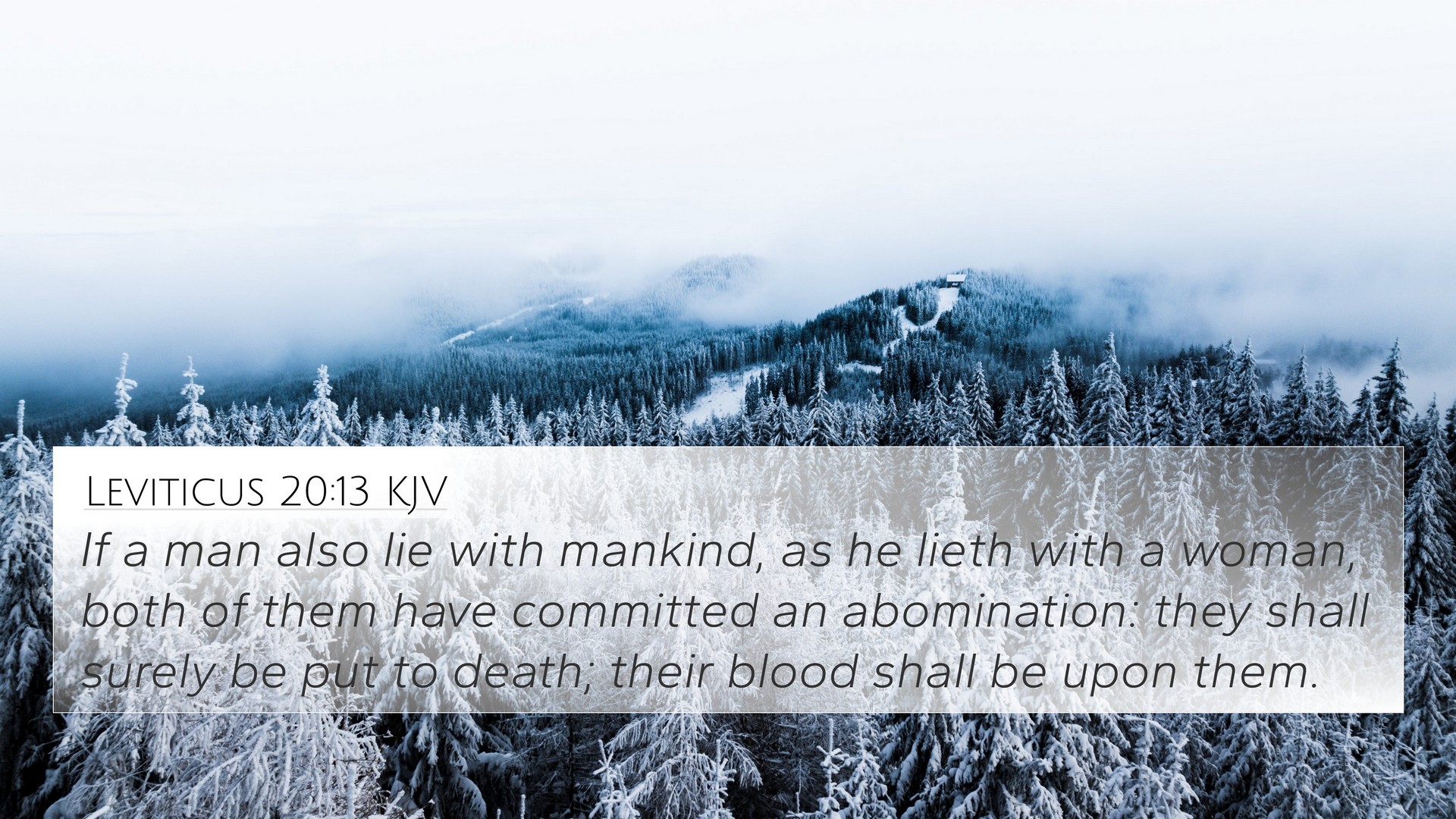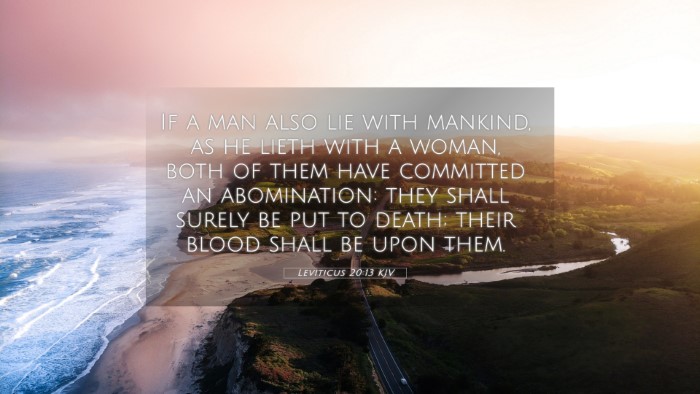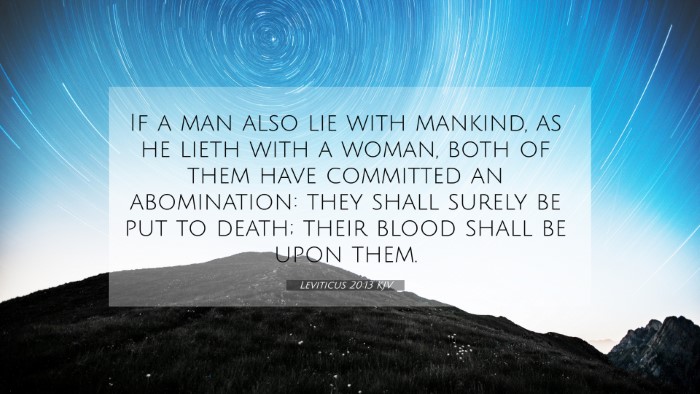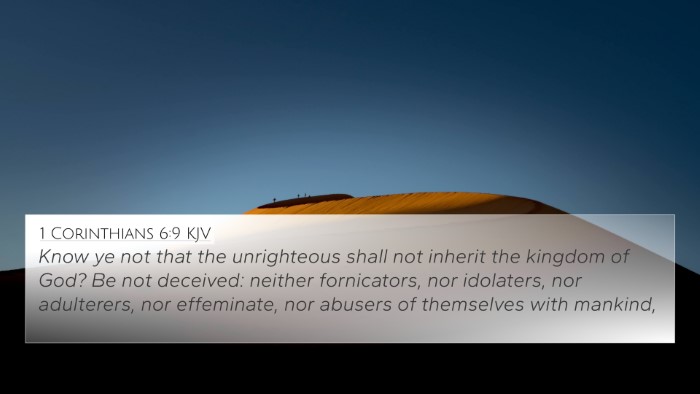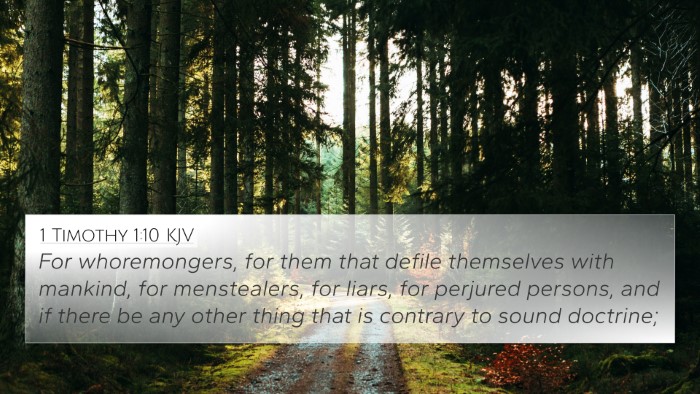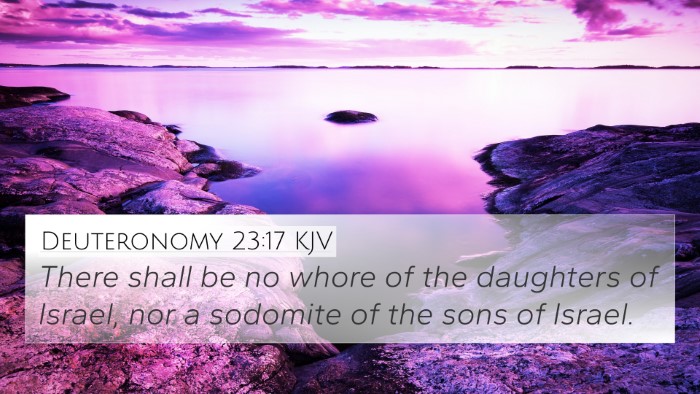Understanding Leviticus 20:13
Verse: Leviticus 20:13 states, "If a man has sexual relations with a man as one does with a woman, both of them have done what is detestable. They are to be put to death; their blood will be on their own heads."
Contextual Background
This verse is situated within the Holiness Code, a collection of laws outlining the moral and ceremonial conduct expected of the Israelites. Leviticus addresses various aspects of purity, sanctity, and community responsibilities, reflecting God's desire for His people to live distinct, holy lives.
Interpretive Insights
Insights drawn from public domain commentaries enrich our understanding of this verse. Matthew Henry emphasizes the seriousness of sin and the need for societal holiness, while Albert Barnes points to the cultural context and the catastrophic implications of such behaviors in ancient Israel. Adam Clarke expands on the understanding of penalties and societal structures surrounding the laws of purity.
Key Themes
- Divine Law: God's regulations express His holiness and concern for human relationships.
- Sacred Community: The severe consequences reflect the importance of maintaining the sanctity of the community.
- Context of Punishment: The penalties serve as deterrents to serious offenses, emphasizing communal accountability.
Cross-References
This verse can be cross-referenced with several other scriptures that explore similar themes of morality and divine law:
- Romans 1:26-27: Discusses unnatural relations and consequences of turning away from God.
- 1 Corinthians 6:9-10: Lists behaviors that disqualify individuals from inheriting the Kingdom of God.
- Leviticus 18:22: Establishes a direct antecedent in prohibiting sexual relations between men.
- Deuteronomy 22:22: Addresses unlawful sexual conduct and its ramifications.
- Genesis 19:4-5: Relates to the events in Sodom and Gomorrah, highlighting societal issues of the time.
- Matthew 5:17-19: Jesus speaks about the law's permanence and importance, affirming its relevance.
- 1 Timothy 1:10: Reiterates the understanding of the law being made for the unrighteous.
Thematic Connections
When exploring the connections between Bible verses, we find a profound inter-Biblical dialogue that emphasizes various moral imperatives and God’s commandments:
- The Law and Morality: The laws established in the Old Testament set the foundation for moral behavior, echoed in the New Testament.
- Sin and Consequence: The theme of sin resulting in punishment is prevalent throughout scriptures, as seen from the stories and teachings of various prophets.
- Community Responsibility: Many scriptural accounts emphasize the importance of maintaining a holy community through adherence to divine laws.
Tools for Bible Cross-Referencing
Engaging with cross-references is crucial for deeper understanding. Here are some tools and methods to aid in Bible cross-referencing:
- Bible Concordances: Helpful for locating themes and connecting verses across the text.
- Bible Cross-Reference Guide: Offers structured approaches to finding related scriptures.
- Online Bible Study Tools: Websites and apps that help cross-reference and analyze biblical texts.
Conclusion
Leviticus 20:13 is a verse laden with implications for morality, community ethics, and the understanding of God's expectations for His people. Engaging with cross-referencing provides a rich tapestry of insights, allowing readers to uncover deeper meanings and apply them to contemporary moral discussions.
